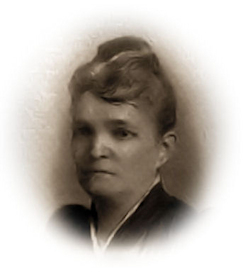Oct. 31.—Mr. W. said last night the farmers felt uneasy about the “Emancipation Proclamation” to take effect in December. The slaves have found it out, though it had been carefully kept from them.
“Do yours know it?” I asked.
“Oh, yes. Finding it to be known elsewhere, I told it to mine with fair warning what to expect if they tried to run away. The hounds are not far off.”
The need of clothing for their armies is worrying them too. I never saw Mrs. W. so excited as on last evening. She said the provost-marshal at the next town had ordered the women to knit so many pairs of socks.
“Just let him try to enforce it and they’ll cow-hide him. He’ll get none from me. I’ll take care of my own friends without an order from him.”
“Well,” said Mr. W., “if the South is defeated and the slaves set free, the Southern people will all become atheists, for the Bible justifies slavery and says it shall be perpetual.”
“You mean, if the Lord does not agree with you, you’ll repudiate him.”
“Well, we’ll feel it’s no use to believe in anything.”
At night the large sitting-room makes a striking picture. Mr. W., spare, erect, gray-headed, patriarchal, sits in his big chair by the odorous fire of pine logs and knots roaring up the vast fireplace. His driver brings to him the report of the day’s picking and a basket of snowy cotton for the spinning. The hunter brings in the game. I sit on the other side to read. The great spinning wheels stand at the other end of the room, and Mrs. W. and her black satellites, the heads of the elderly women in bright bandanas, are hard at work. Slender and auburn-haired, she steps back and forth out of shadow into shine following the thread with graceful movements. Some card the cotton, some reel it into hanks. Over all the firelight glances, now touching the golden curls of little John toddling about, now the brown heads of the girls stooping over their books, now the shadowy figure of little Jule, the girl whose duty it is to supply the fire with rich pine to keep up the vivid light. If they would only let the child sit down! But that is not allowed, and she gets sleepy and stumbles and knocks her head against the wall and then straightens up again. When that happens often it drives me off. Sometimes while I read the bright room fades and a vision rises of figures clad in gray and blue lying pale and stiff on the blood-sprinkled ground.
Note: To protect Mrs. Miller’s job as a teacher in post-civil war New Orleans, her diary was published anonymously, edited by G. W. Cable, names were changed and initials were generally used instead of full names—and even the initials differed from the real person’s initials. (Read Dora Richards Miller’s biographical sketch.)
